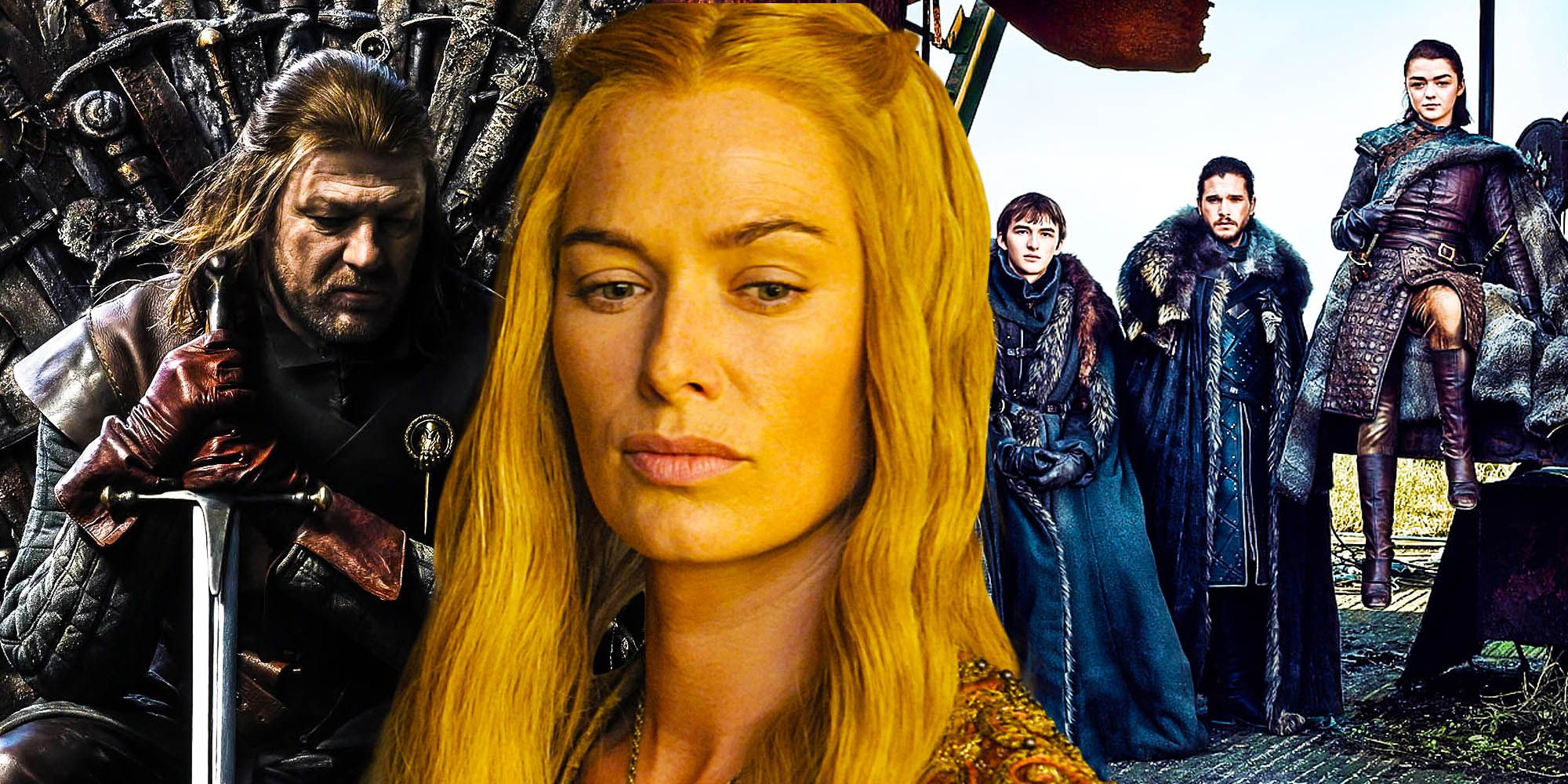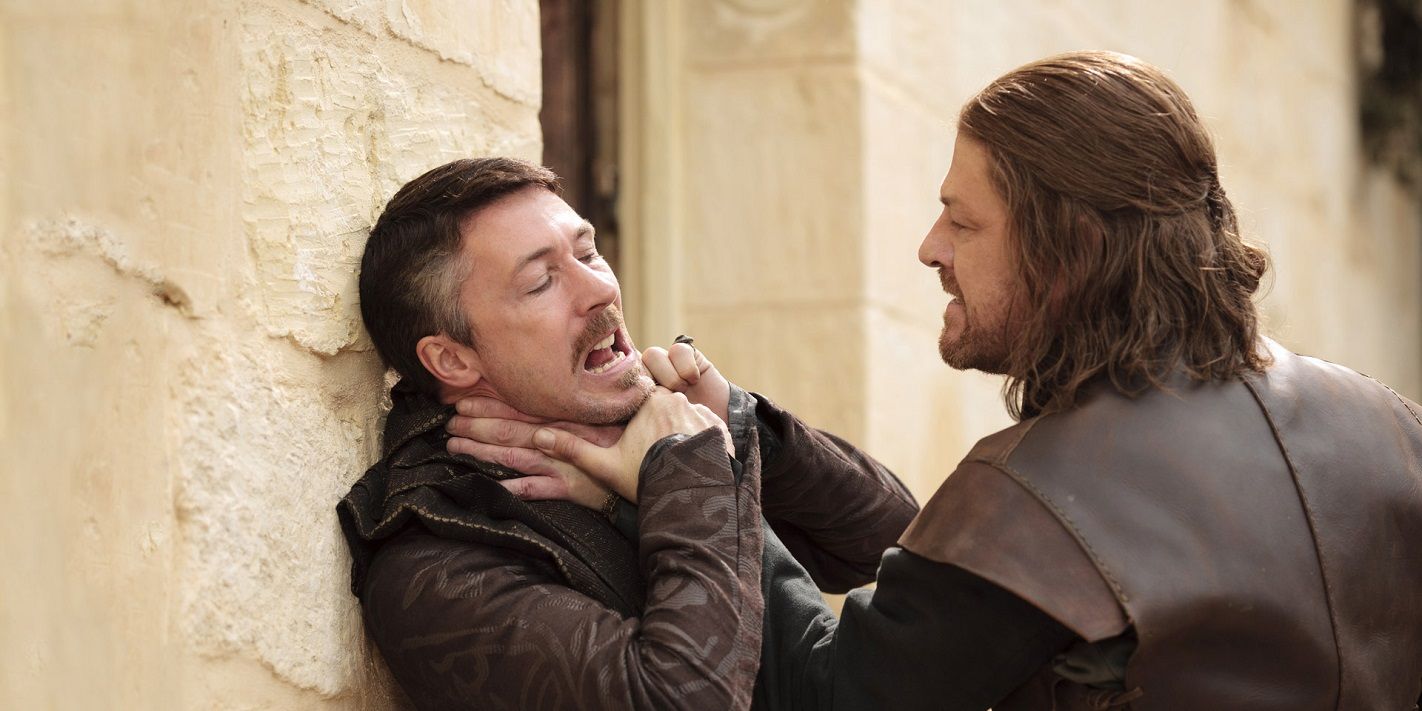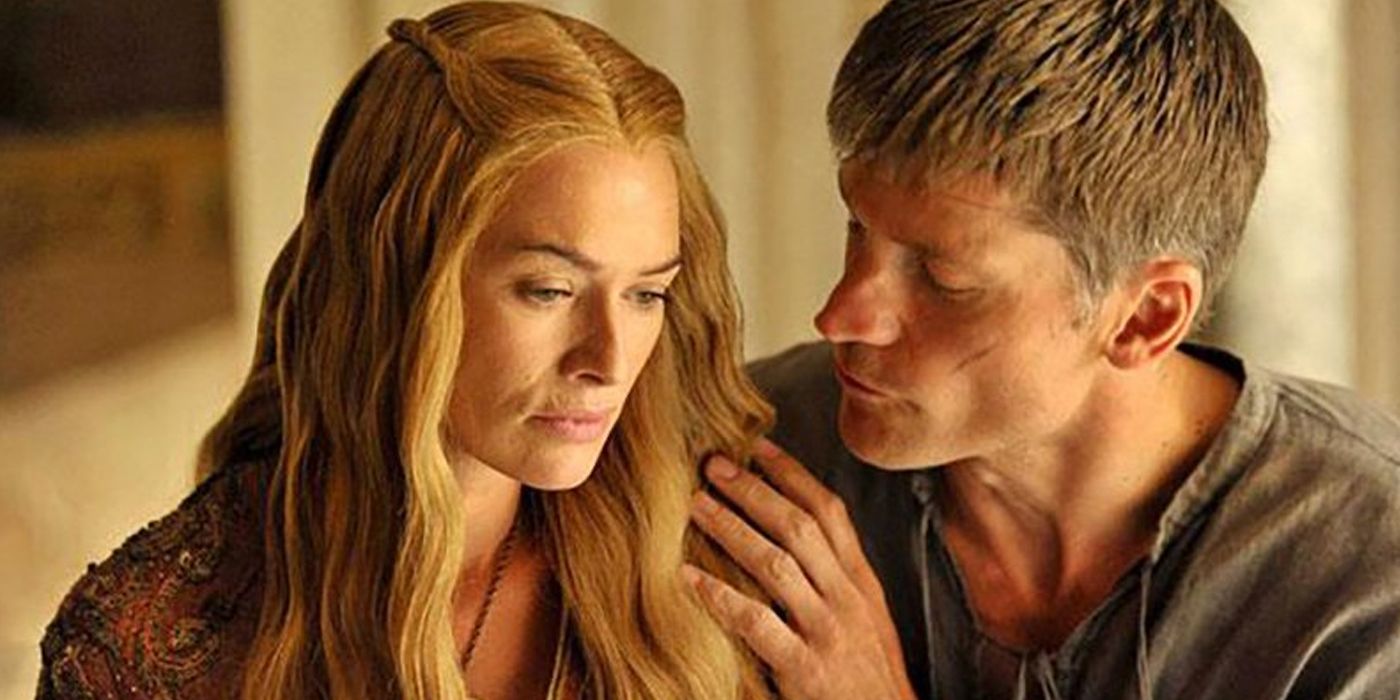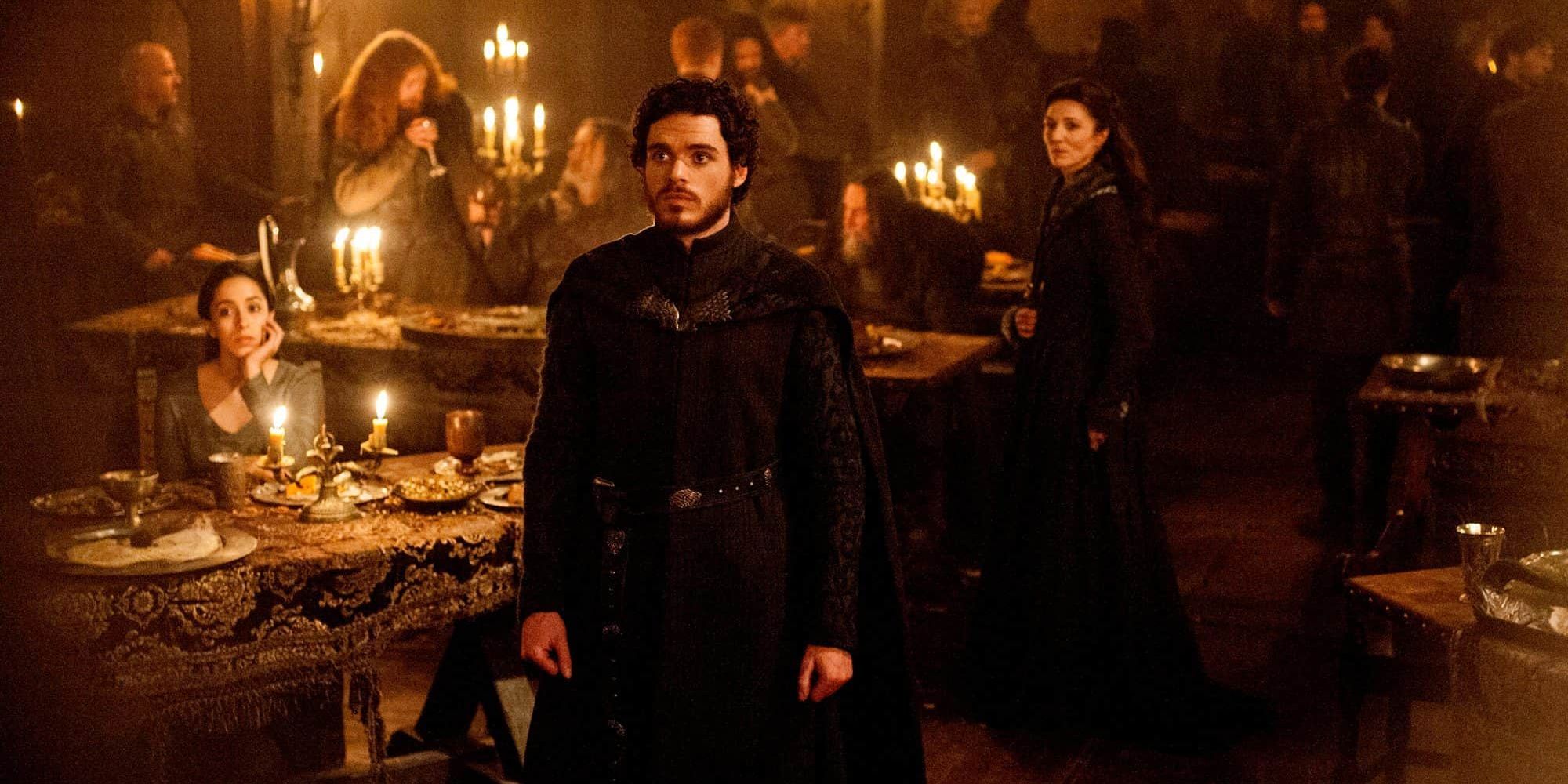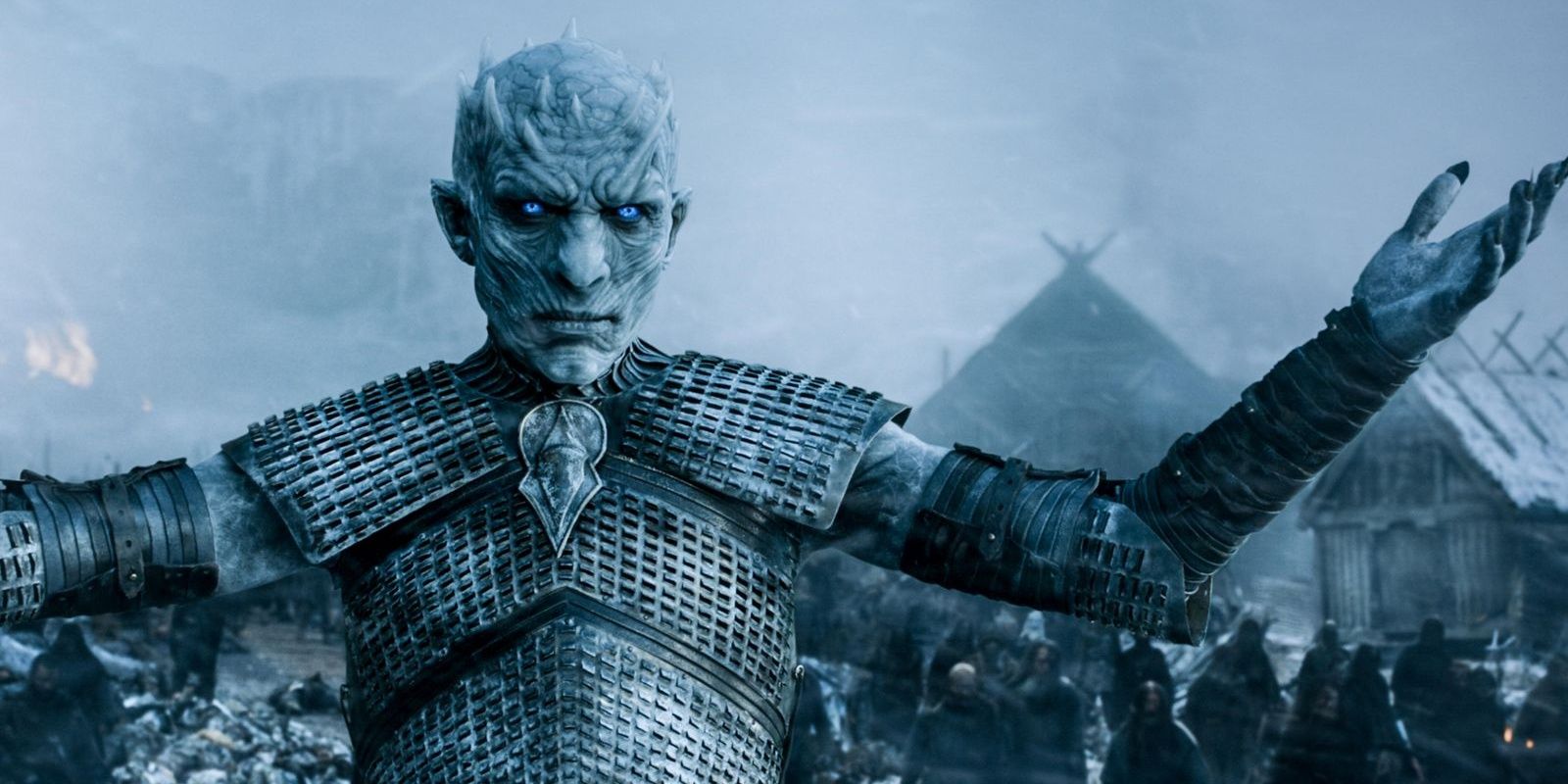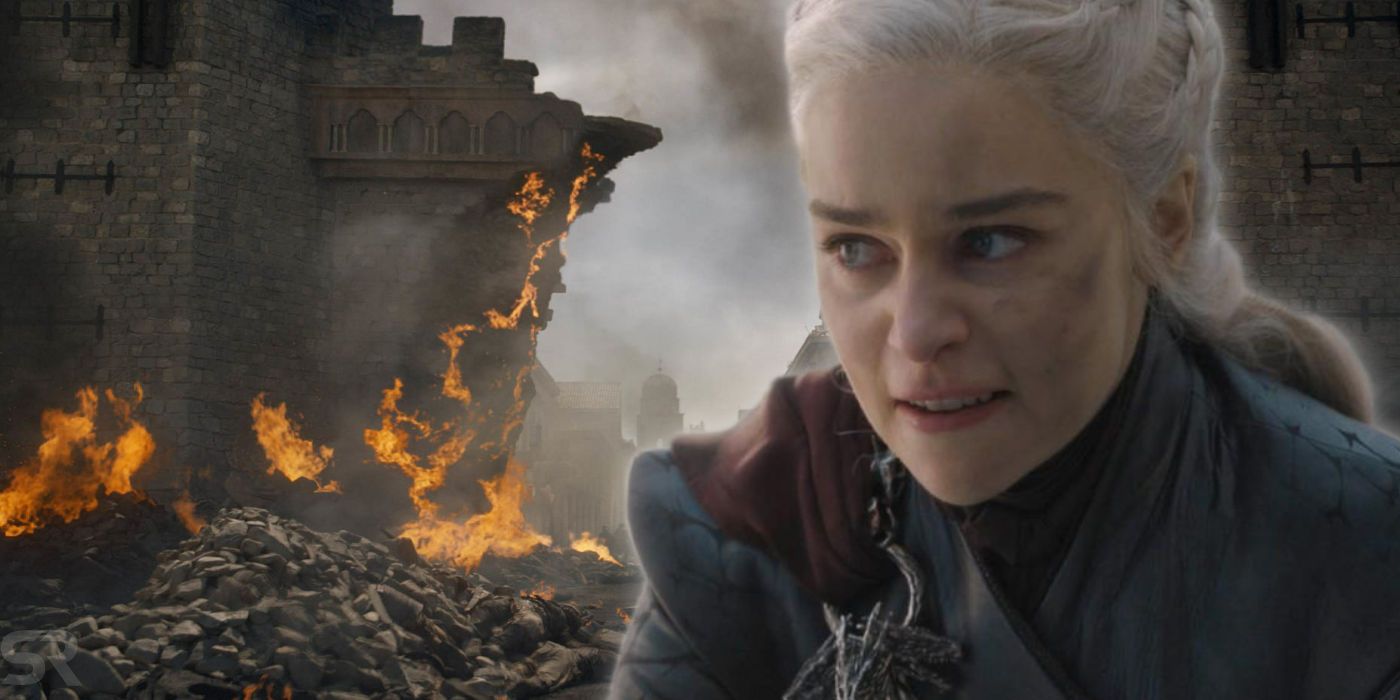What is it like for a modern viewer to watch Game of Thrones for the first time, aware of all the controversies that have come to define it? Based on the fantasy novels of George R.R. Martin, HBO's Game of Thrones TV series launched in 2011 and soon became a pop culture phenomenon. By 2018, it was considered the most popular TV show in the world even though not a single episode aired that year. It has had a lasting effect on culture and society, proving the appeal of big-budget fantasy TV shows, and now networks and streaming services are vying to fill the gap left by its completion. Although many assumed it would decline now it has ended, third-party analytics suggest people were eager to rewatch it during the pandemic.
And it has also proved incredibly controversial. Some of the actors found the experience extremely harrowing, with Maisie Williams struggling with her body image, Sophie Turner battling depression, and Hannah Waddingham being waterboarded for 10 hours during production of season 6. In the end, though, it was the final season that really kicked up a storm; the show had gotten ahead of Martin's books, and showrunners David Benioff and D.B. Weiss wrote the ending. Even some of the actors have expressed criticism over Game of Thrones season 8, with Emilia Clarke uncomfortable with Daenerys' plot.
All this raises an intriguing question - what is it like watching Game of Thrones now, as a new viewer, and particularly one who is aware of the backlash over season 8? The experience is actually very different, with some story beats set up nicely - and others failing because of the foreknowledge.
A New Game of Thrones Viewer Experiences The Show Very Differently
Watching Game of Thrones now is very different compared to tuning in year over year to watch it one season at a time. The key difference is that it is now possible to binge-watch Game of Thrones, although granted, given its length, this is still a fairly time-consuming experience. Still, moving from a spectacular and foreboding season finale to the beginning of the next season at pace, with none of the dramatic buildup, offers a new experience. Sometimes this actually helps, because it doesn't allow time to imagine how things could play out, nor experience the hype that can build potential plots out of proportion. It certainly means arcs become more easy to discern - and, unfortunately, it also makes out-of-character moments even more jarring.
The first few seasons of Game of Thrones are risky and unpredictable, as though anyone could die at any given moment. This culminates in the death of Ned Stark at the end of season 1; he was the closest thing the show had to a protagonist at that point, and his execution served to underline the fate that could befall anyone. The sense of danger is heightened by knowing some of the events to come, such as the Red Wedding, and as this particular event approaches in season 3, it's difficult to not wonder which characters will make it through. The deliberate decision to place Arya Stark in such close proximity to the Red Wedding adds to this, because for a moment, it really does seem as though she's going to get caught up in the tragedy. In a way, watching Game of Thrones as a newcomer now is akin to a book reader watching it while it was on the air.
This doesn't last, though. By the time season 5 comes around, the arcs have become increasingly discernible and it's quite easy to guess who will live and who will die - and, indeed, on many occasions, the deaths have been overly signposted in the narrative. When Jon Snow is resurrected in season 6, it's a betrayal of the show's main premise, because from that point on, he feels like an almost invincible protagonist. Making matters worse, by season 7, some background figures such as Benjen Stark have turned into little more than plot devices to help people like Jon survive; the plot armor guarding certain characters becomes too easy to discern, undermining the drama. All this means Game of Thrones is a tale of two TV shows, the first half wild and unpredictable and the second a lot safer. By binge-watching and following arcs more clearly, that feels perhaps a little more powerful compared to what audiences realized at the time.
Some Game Of Thrones Journeys & Twists Are Still Surprising
The Starks and the Lannisters are infamous, meaning anyone exposed to popular culture has heard of them, but the experience of meeting them as fully three-dimensional characters is very different. Game of Thrones' most remarkable achievement is that it genuinely makes you care about people they initially considered irredeemable; the perfect example is Jaime Lannister, introduced through his incestuous relationship with Cersei and attempting to murder a child who sees their love-making, who gradually becomes a compelling hero who finally leaves his lover in order to do the right thing at the end of season 7. There's something almost Shakespearean about Jaime's arc, and especially about his tragic fate, because he is simply never able to move on in spite of himself. Meanwhile, even as Game of Thrones redeems some, it doubles down on the evils of others; Joffrey is demented and hateful, Lord Walder Frey is truly contemptible, and Ramsay Bolton is vile. This narrative approach really does succeed in making Game of Thrones unpredictable at first, because you can never be sure who will transcend their nature and who will succumb to it.
One of the most remarkable stories is that of Arya Stark, who begins as something of a tomboy and gradually morphs into one of the most capable killers of Westeros. When she returns home, having been trained as an assassin, she is almost like the Game of Thrones equivalent of a superhero, relentless and unstoppable. Some of the best writing in season 7 plays on this, however, by teasing the possibility she's been set against her own sister, Sansa. That particular moment leads to the death of Littlefinger, in a twisted and satisfying confrontation in the season 7 finale. Even knowing where each character ultimately ends up, the smaller beats of how they get there can still be shocking - all of which are nearly perfected by particularly moments in the final seasons.
Game Of Thrones Changes Character When It Goes Beyond The Books
It's sadly possible to spot the moment Game of Thrones moves beyond George R.R. Martin's books, because Benoiff and Weiss simply can't match him; their arcs are more appropriate for the convention of television, explaining why they become increasingly predictable. What's more, because these were being written at a time the showrunners knew how popular their series was, Game of Thrones becomes a little too self-aware. Sometimes this manifests in relatively minor ways, with characters explicitly referring to events by name, but most of the time it's more subtle; characters who have become popular with viewers have to die in ever-more-spectacular ways, when previous seasons would simply have killed someone in a more surprising manner. Sadly, this is all the more noticeable while binging through the show for the first time.
Season 8's Unsatisfactory Ending Begins With The Night King
Game of Thrones season 8 is, of course, the most controversial of them all. The problem begins with the threat of the Night King, which frankly feels far more pressing than the battle for the Iron Throne, meaning the most dramatic battle of all takes place well before the finale. "The Long Night" is a stunning episode, with so much action and so many character beats that it feels like it runs far longer than its actual 82 minutes. Again, as common with the sections written by Benoiff and Weiss, there's a little too much signposting; it swiftly becomes clear Arya will be the one to save the day, and as the Night King's forces advance upon Bran, it's obvious she's going to emerge from the shadows. As dramatic as it may be, the storytelling lacks the skill of Martin.
Benoiff and Weiss would have been wiser to structure season 8 very differently, with the story centering around Daenerys' attempt to reclaim the Iron Throne and unite all the peoples of Westeros in a battle for survival against the Night King. This would have meant the Iron Throne remained central to the entire story, while the final spectacular battle between the forces of humanity and the White Walkers would bring Game of Thrones to a close.
Daenerys' Game of Thrones Arc is Even Less Satisfying
And then comes the finale. It's impossible not to have heard that Daenerys is going to be twisted out of character, and yet, for all that's the case, her journey to the Iron Throne is incredibly compelling, making the heel turn just as frustrating. Game of Thrones season 8 attempts to justify Daenerys' portrayal, with a scene in which members of her court remind viewers of the atrocities she's committed before she arrived on the shores of Westeros, but ironically that serves instead to remind you she was once a complex and nuanced woman, and she has been turned into a rampaging force of nature simply because - it feels - the show wanted a spectacular conclusion. Everything that happens in the episode "The Iron Throne" is dictated by the requirements of the plot, with character-work sidelined. Daenerys suffers the worst, but her actions at King's Landing aren't the only disappointment here; even the destruction of the Iron Throne, and the random shift to something beginning to resemble a democratic process rather than a traditionally feudal society, is remarkably forced.
To be fair to Benoiff and Weiss, they were faced with something of an impossible situation; Martin had not finished his books, meaning they had to figure out how the story was going to come to a conclusion themselves, and it's worth noting even a literary genius like Martin seems to be struggling to work out his own ending - the Game of Thrones books remain unfinished at time of writing. It is entirely possible there is no entirely satisfying conclusion to Game of Thrones, simply because the world of Westeros is too well-realized, and the characters are too compelling, meaning any viewer - original or new to the franchise - is too invested.
Game of Thrones' Poor Ending Doesn't Make The Show Bad
There are two ways to approach Game of Thrones. On the one hand, someone who has been invested in the story from the beginning has spent years wondering how the story will end, speculating who will ultimately be seated on the Iron Throne; that audience is likely to be especially unhappy with season 8. But as a new viewer, it all plays out differently. Game of Thrones isn't about the destination, but rather the journey. And make no mistake, the journey is a good one; the heroes and villains are compelling (and some villains become heroes, and vice versa), the world is wonderfully immersive, the special effects are increasingly remarkable, and the stakes sometimes feel incredibly high. However poor season 8 may be, it cannot detract from the experience of watching Game of Thrones - especially not for the first time.

